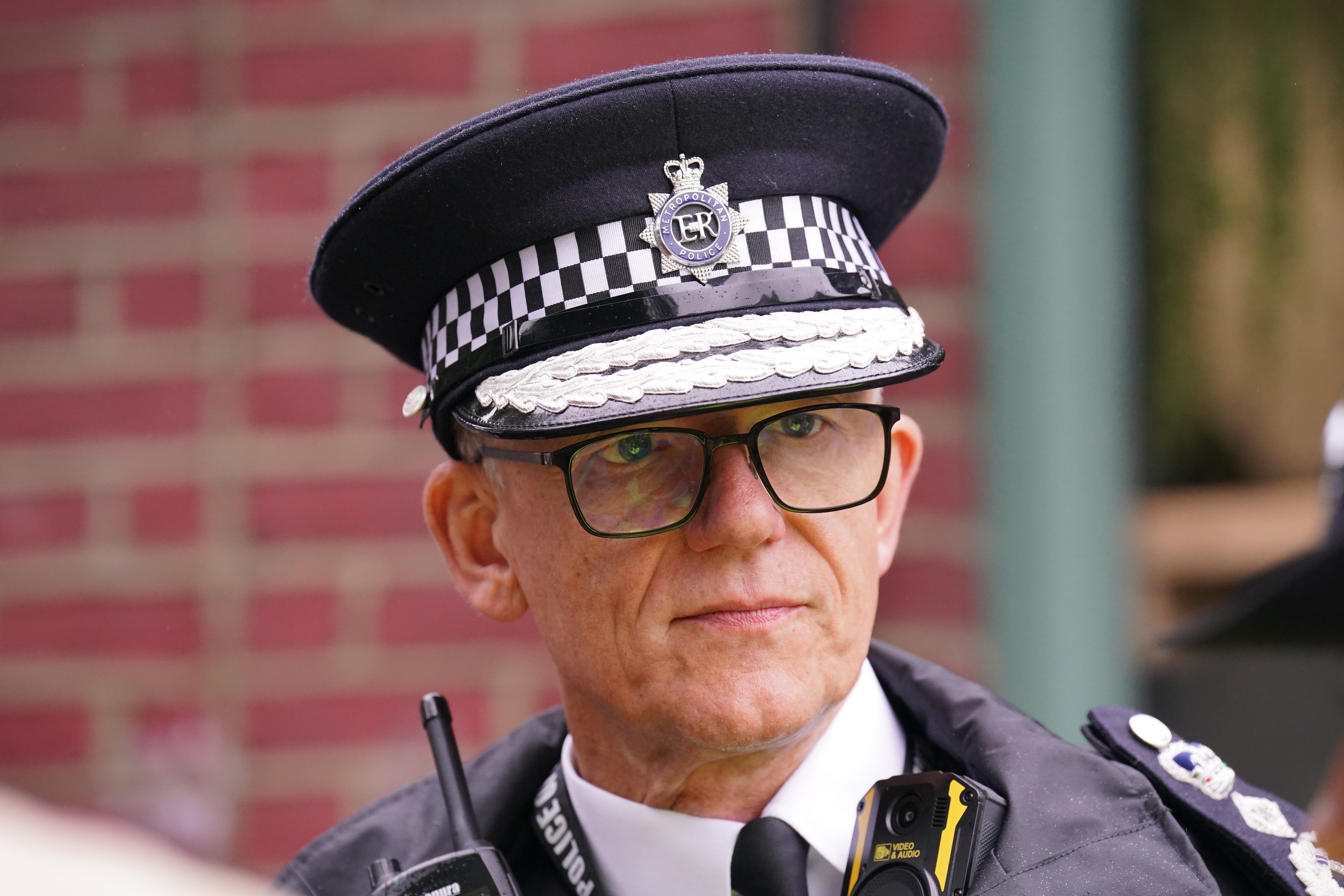Arresting protesters for climbing on war memorial would be illegal, Rowley says
Sir Mark Rowley said the move by demonstrators was ‘unfortunate’ and ‘inflammatory in certain ways’ but not against the law.

Arresting protesters for climbing on a war memorial after a pro-Palestinian march would have been illegal, the Metropolitan Police Commissioner has said.
Sir Mark Rowley said the move by demonstrators was “unfortunate” and “inflammatory in certain ways” but not against the law as he was questioned about the force’s response to the event on Wednesday.
Police must be able to enforce the law impartially rather than “pandering to public opinion,” he told an Institute for Government event on Thursday.
These – and the police have said this – are deeply disrespectful actions. The war memorials recognise the sacrifice people have made for our freedom, and abusing, desecrating behaviour like this is deeply, deeply offensive
Home Secretary James Cleverly has suggested officers could be given new powers to protect war memorials after protesters scaled the Royal Artillery Memorial at Hyde Park Corner in London last night.
Asked about the police response, Sir Mark said: “What the officer didn’t do last night was make up a law that it’s illegal to do something and do an arrest which would have been illegal, clearly.”
He defended the actions of officers on the ground, describing them as “sensible” in the circumstances, adding: “The officers intervened, as officers often are doing, to try and de-escalate risk of conflict, even when there isn’t explicit power to do it.”
The commissioner suggested that there are elements of current police powers which “do not work very well” and that the Met will be discussing these with Government.
But wider issues, like the balance between the right to protest and the impact it may have on others, are a matter for Parliament, he said.
Sir Mark refused to be drawn into whether sacked home secretary Suella Braverman had interfered with the police’s job by writing an op-ed in The Times suggesting officers “play favourites” with pro-Palestinian protesters.
He said he would not get into “the politics” of the issue but that officers are used to contention surrounding their work and “don’t worry unduly.”
However, the police chief stressed the centuries-old principle of police being able to act impartially and without “pandering to public opinion”.
Referring to the 19th-century Peelian principles, he said: “The fifth one I think captures the issues of the day, to seek and preserve public favour, not by pandering to public opinion but by constantly demonstrating absolutely impartial service to the law, in complete independence of policy, and without regard to the justice or injustice of the substance of individual laws.
“It’s interesting that that could have been written down 200 years ago and be so apposite today.”
The IfG event was rescheduled after a last-minute meeting in Downing Street between Sir Mark and the Prime Minister over the response to a pro-Palestinian protest, which clashed with the original date.
It comes after Mr Cleverly, who was a Territorial Army officer in the Royal Artillery, said he would examine whether the police needed new powers.
“I’m not going to let my personal feelings cloud my judgment on this but it is clearly wrong, and the police have said that they recognise it is deeply disrespectful for people to climb on war memorials,” he told LBC.
On ITV’s Good Morning Britain, he added: “These – and the police have said this – are deeply disrespectful actions. The war memorials recognise the sacrifice people have made for our freedom, and abusing, desecrating behaviour like this is deeply, deeply offensive.
“I will look at what further measures need to be taken so the police can take action on this.”
Police said the protesters who climbed on the memorial were a breakaway group from the main march, who had been dispersed at Hyde Park Corner.
Bookmark popover
Removed from bookmarks